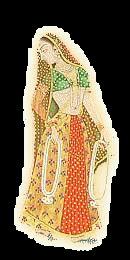|
Page < 1 2 3 4 5 6 7 8 9 10 11 12 13 14 15 16 17 18 19 20 21 22 23 24 >
Indians
Not Allowed: A Humiliating Raj
Jawaharlal
Nehru has remarked:
"In India every European, be he German, or Pole or Rumanian, is
automatically a member of the ruling race. Railway carriages, station retiring
rooms, benches in parks, etc. are marked 'For Europeans Only.' This is bad
enough in South Africa or elsewhere, but to have to put up with it in one's own
country is a humiliating and exasperating reminder of one's enslaved
condition."
(source: The
Discovery of India - By Jawaharlal Nehru.
p.295).
Dogs and
Indians?
 "...dogs and Indians" were,
by notification in that precise language, excluded from some of "Europeans
only" clubs. Indians were not allowed to travel by railway carriages, or
use railway waiting rooms, reserved for Europeans. Not only that, Indian judges
were not allowed to try Europeans in the districts and the Ilbert
Bill, introduced in 1883 during Lord
Ripon's viceroyalty, to remedy the situation, had
to be withdrawn in the face of vicious opposition by Europeans and
Anglo-Indians. "...dogs and Indians" were,
by notification in that precise language, excluded from some of "Europeans
only" clubs. Indians were not allowed to travel by railway carriages, or
use railway waiting rooms, reserved for Europeans. Not only that, Indian judges
were not allowed to try Europeans in the districts and the Ilbert
Bill, introduced in 1883 during Lord
Ripon's viceroyalty, to remedy the situation, had
to be withdrawn in the face of vicious opposition by Europeans and
Anglo-Indians.
(source:
Colonialism
and animals - By Hiranmay Karlekar
- dailypioneer.com - March
5 2004).
In 1930
the Pahartali European Club, which bore the
notorious sign 'Dogs and Indians not allowed'.
According
to Zareer Masani, "Whites only places
like the Delhi Club remained a symbolic reminder of the alien and humiliating
side of foreign rule. The last of them, like the Breach Candy Swimming Pool in
Bombay (Mumbai), excluded Indians till the 1960s and continues to operate
discriminatory entry rules for visitors. The vast majority of Indians, of
course, had no desire to enter European society. And the notion of segregation
was by no means new in a caste-ridden society. What made Anglo-Indian racism
unacceptable was that it was practiced by foreign rulers and affected precisely
those Indians who were most westernized and had the strongest aspirations to
equality. There was something particularly galling about a system which allowed
in the most humble white, but excluded the most aristocratic Indian.

The Royal
Bombay Yacht Club, which barred Indians from entering, even if they happened to
be Maharajas.
(image
source:
Indian
Tales of the Raj - By Zareer Masani).
***
The racial exclusiveness and
prejudice of Anglo-Indian society was not confined to social contact with
Indians. Culturally, it took the form of an overwhelming rejection of and
contempt for India's traditional learning and arts, with a corresponding
emphasis on the superiority of Western values and education. Incidents of racial
humiliation were an everyday occurrence for most Indians who encountered the
British. The most visible symbols of white supremacy were the 'Europeans Only'
or Indians and Dogs not allowed' in first-class railway carriages.
This memory still
rankles with Indian scholars like Sankara Menon,
who is President of the Madras theosophists' educational center at Kalakshetra. "The British were a very
blind people...except in the case of a very few people who were deep students,
they did not make any attempt during their 250 years here in this country to
contact Indian thinking. They wouldn't know what the Bhagavad Gita' contained,
what the Upanishads contained....." The new imperialism
brought with it the proselytizing work of Christian missionaries; and neglect of
Indian art became a virtue in the campaign to win Indian converts.
(source:
Indian
Tales of the Raj - By Zareer Masani
p. 52-73).
Dr. Ananda
Kentish Coomaraswamy (1877-1947) the
late curator of Indian art at the Boston Museum of Fine Arts, and author of The
Dance of Shiva: Essays on Indian Art and Culture, has
observed:
"The
beauty and logic of Indian life belongs to a dying past, and the 19th century
has degraded much and created nothing. It is an ungrateful and unromantic task
to govern a subject race. England could not in any case have inspired a new
life; the best she could have done would have been to understand and conserve
through patronage and education the surviving categories of Indian civilization
- architecture, music, handicrafts, popular and classic literature, and schools
of philosophy - and that she
failed here is to have been found wanting in imagination and sympathy. It should
not have been regarded as the highest ideal of Empire "to give to all men
an English mind."
(source: The
Wisdom of Ananda Coomaraswamy - presented by S. Durai Raja Singam
1979 p. 32).
Mr. William
Archer, in an article in
the July, 1914, Fortnightly Review, describes the famous Yacht Club of Bombay,
the social center of official European life in the city, and says:
"No one of
Indian birth except the servants, not even the Rajput princes or the Parsee
millionaire may set foot across its threshold. It is the same with the Byculla
Club; indeed, every club in India practically follows this model and makes
itself a little England representing exactly the interests, the comforts and the
vulgarities of an English Club." He further comments:
"Such a
drawing of the color line is of course inexpressibly galling to a proud and
sensitive people, who see their rulers, when the business of 'running the
country is over, withdraw into impregnable caste-strongholds."
The following
is declared an actual occurrence: An Indian Prince, the ruler of a Native State
in India, visits England and by invitation dines with the King in the Buckingham
Palace. He returns to India and finds himself not allowed to enter any English
Club in Calcutta, Bombay, or any other leading city.
Says the editor
of an Indian religious weekly: "Aside from the missionaries and the army
the one meeting place of the British in this country, is the European Club of
the neighborhood, the members of which form the most arrogant and exclusive body
to be found. Those who know at first hand the types of people who constitute the
members of these arrogant associations are tempted to say that with them an
unblushing assumption of race-superiority takes the place of religion, club life
is with them a substitute for church life, and their one aim is exploitation of
the country and enrichment of themselves. The European clubs with this smart set
are the most anti-Indian and reactionary bodies in the whole of India."
(source: India
in Bondage: Her Right to Freedom - By Rev. Jabez T. Sunderland
p. 80-82).
 (Note:
Please refer to interesting article - Hindi
Controversy At Duke Continues - according to Jay
Strader and Berin Szoka of Duke University: "Were it not for the
British, whatever 'ancient traditions and rich culture' existed before their
arrival would be enjoyed only by the very top of India's feudal case
system," Sophomore Berin Szoka, editor-in-chief of the Duke Review, argued
that the values of the West are superior to those of a "primitive,
impoverished country like India". (Note:
Please refer to interesting article - Hindi
Controversy At Duke Continues - according to Jay
Strader and Berin Szoka of Duke University: "Were it not for the
British, whatever 'ancient traditions and rich culture' existed before their
arrival would be enjoyed only by the very top of India's feudal case
system," Sophomore Berin Szoka, editor-in-chief of the Duke Review, argued
that the values of the West are superior to those of a "primitive,
impoverished country like India".
Perhaps
these Duke students should ponder as to how India became impoverished with the
arrival of the British?
The spirit of Indian nationalism was intensified
by the growing discontent and disaffection with British rule due to the racial
arrogance of the rulers. In this regard, Sir Thomas
Munro wrote in 1817, "Foreign conquerors have treated the
natives with violence, but none has treated them with so much scorn as we; none
have stigmatized the whole people as unworthy of trust, as incapable of honesty,
and as fit to be employed only where we cannot do without them. It seems not
only ungenerous, but impolite to debase the character of a people fallen under
our dominion."
The social exclusiveness of the Englishmen, their arrogance and insolent
treatment of Indians, particularly the immunity which they practically enjoyed
for their criminal acts, including even the murder of Indians, were sources of
grave discontent.
To the English-educated Indians who formed the main pillars of support for
British rule, virtual exclusion from the higher branches of administration on
purely racial grounds was the rudest shock.
http://mama.indstate.edu/users/india/country/ind1.html
Jawaharlal
Nehru wrote
with sadness:
"Biologists tell us that
racialism is a myth and there is no such thing as a master race. The whole
ideology of this rule was that of the herrenvolk and the master race, and the
structure of government was based upon it; indeed the idea of a master race is
inherent in imperialism. More powerful than words was the practice that
accompanied them and, generation after generation and year after year, India
as a nation and Indians as individuals were subjected to insult, humiliation,
and contemptuous treatment. The English were an imperial race, we
were told, with the god-given right to govern us and keep us in subjection.
"
(source: The
Discovery of India - By Jawaharlal Nehru p.326).
"The
Viceroy sat at the apex of a colossal pyramid of power, and British rule was
founded on an idea of hierarchy as baffling in its complexity as the caste
system of the Hindus themselves. The Hindus had their castes while
the British had their classes, and in each case very fine distinctions sometimes
separated one social level from the next. The subtleties of the British class
system became elaborately codified in the Warrant
of Precedence, which was designed as an infallible guide to
hierarchy in India, indispensable to the proper arrangement of ceremony,
conference or even of a mere dinner party."
(source: India
Britannica - By Geoffrey Moorhouse p. 130).
Rabindranath
Tagore, Nobel Prize and Western Critics
After the
announcement that the Nobel Prize was to be awarded to Tagore, Western
critics sought to establish the superiority of the 'Caucasian race' over the
'Indian race' ; to
discover in the poet, a dreamer with a 'narrow Western outlook' and a dated
Western sensibility who had been favored by preferential treatment that was
according to them, often meted out to 'colonials' for political exigency. They
saw the award as something of a humiliation to which they were supposed to
adjust themselves:
"It is the first time that the Nobel Prize has gone to anyone who is not what we
call 'white'.
It will take time, of course, for us to accommodate ourselves to
the idea that some one called Rabindranath Tagore should receive a world prize
for literature."
(source:
The
Raj Syndrome: A Study in Imperial Perceptions - By Suhash Chakravarty.
Penguin Books. 1991 59).
Winston
Churchill's scornful view of India and
her religion:
"I
hate Indians (read Hindus). They are beastly people with a beastly
religion."
(source: The
Saffron Swastika - By Koenraad Elst Volume 1. p. 532).
  
Page < 1 2 3 4 5 6 7 8 9 10 11 12 13 14 15 16 17 18 19 20 21 22 23 24 >
|